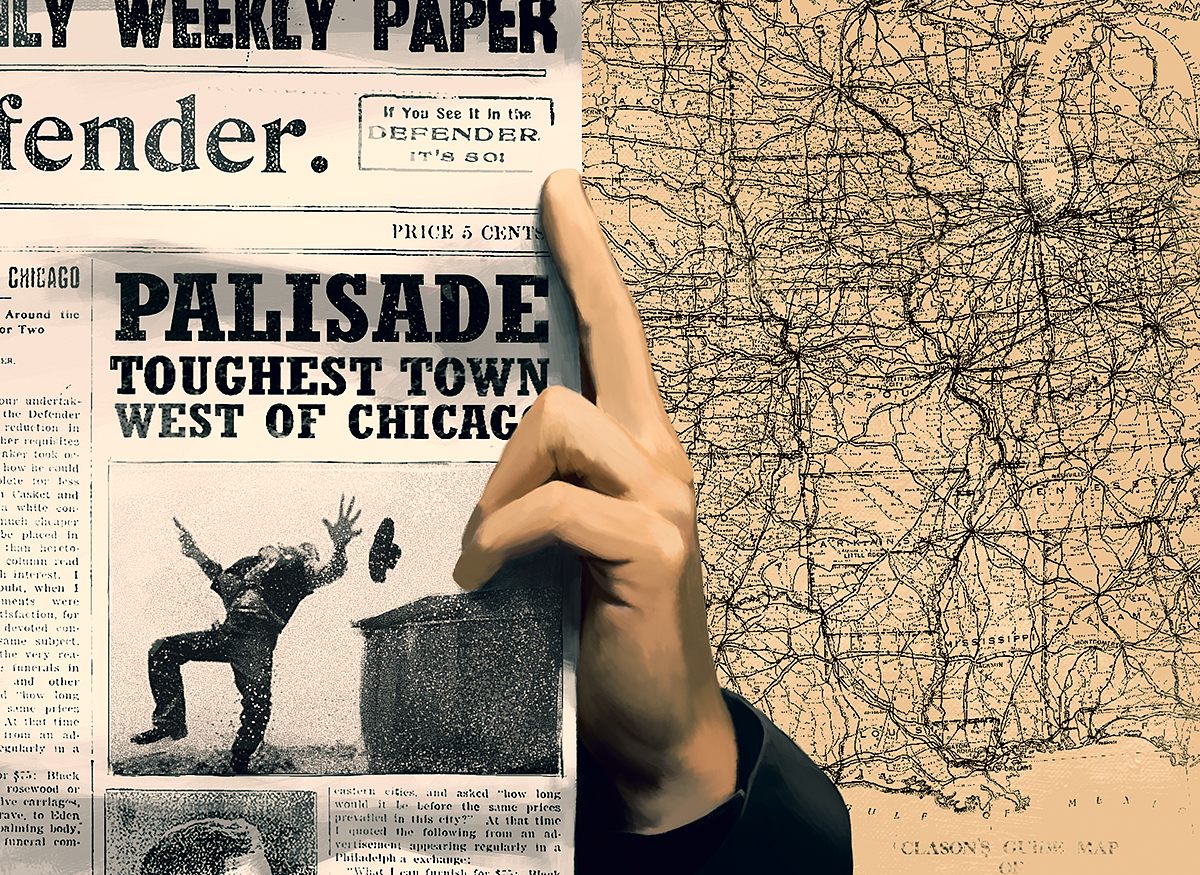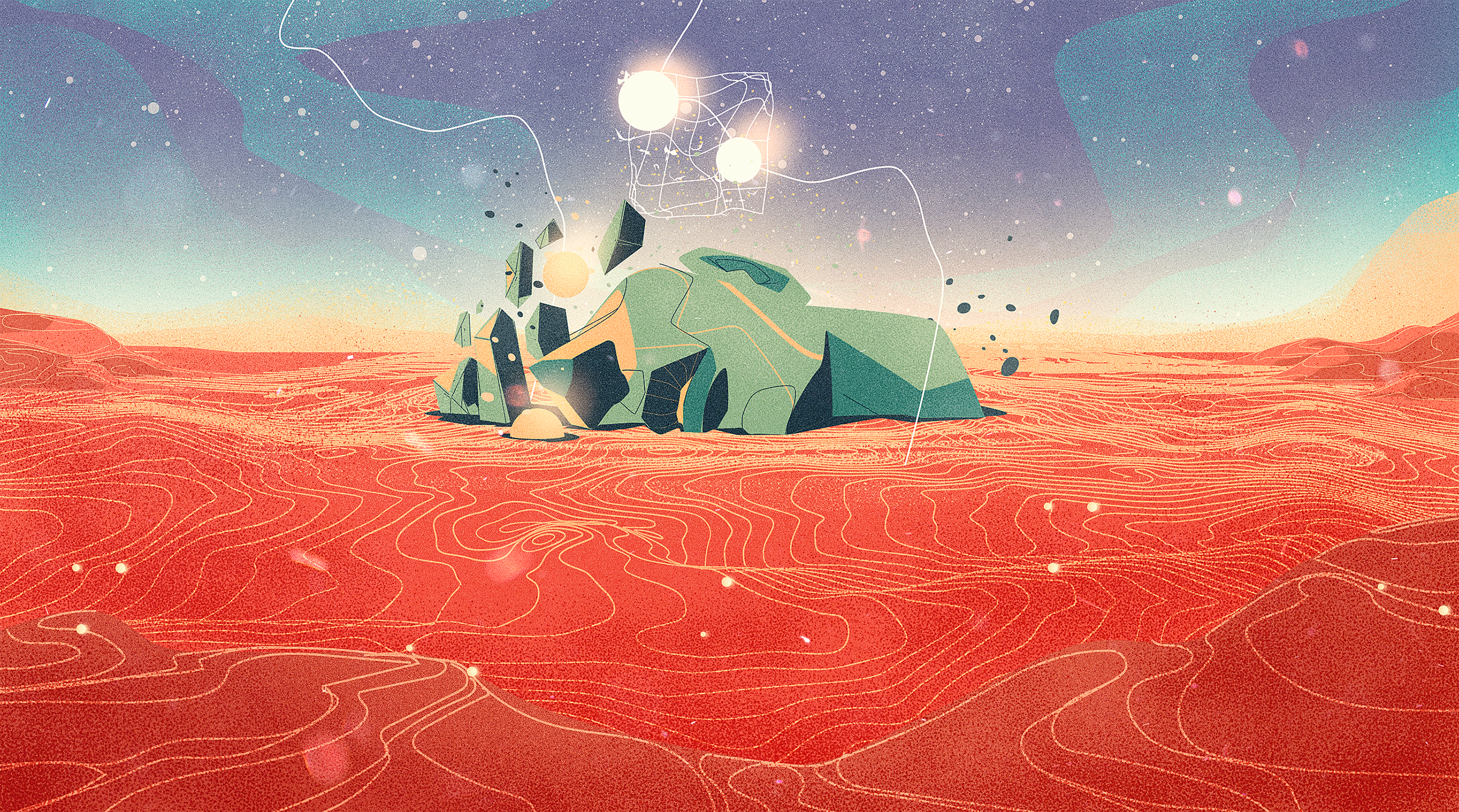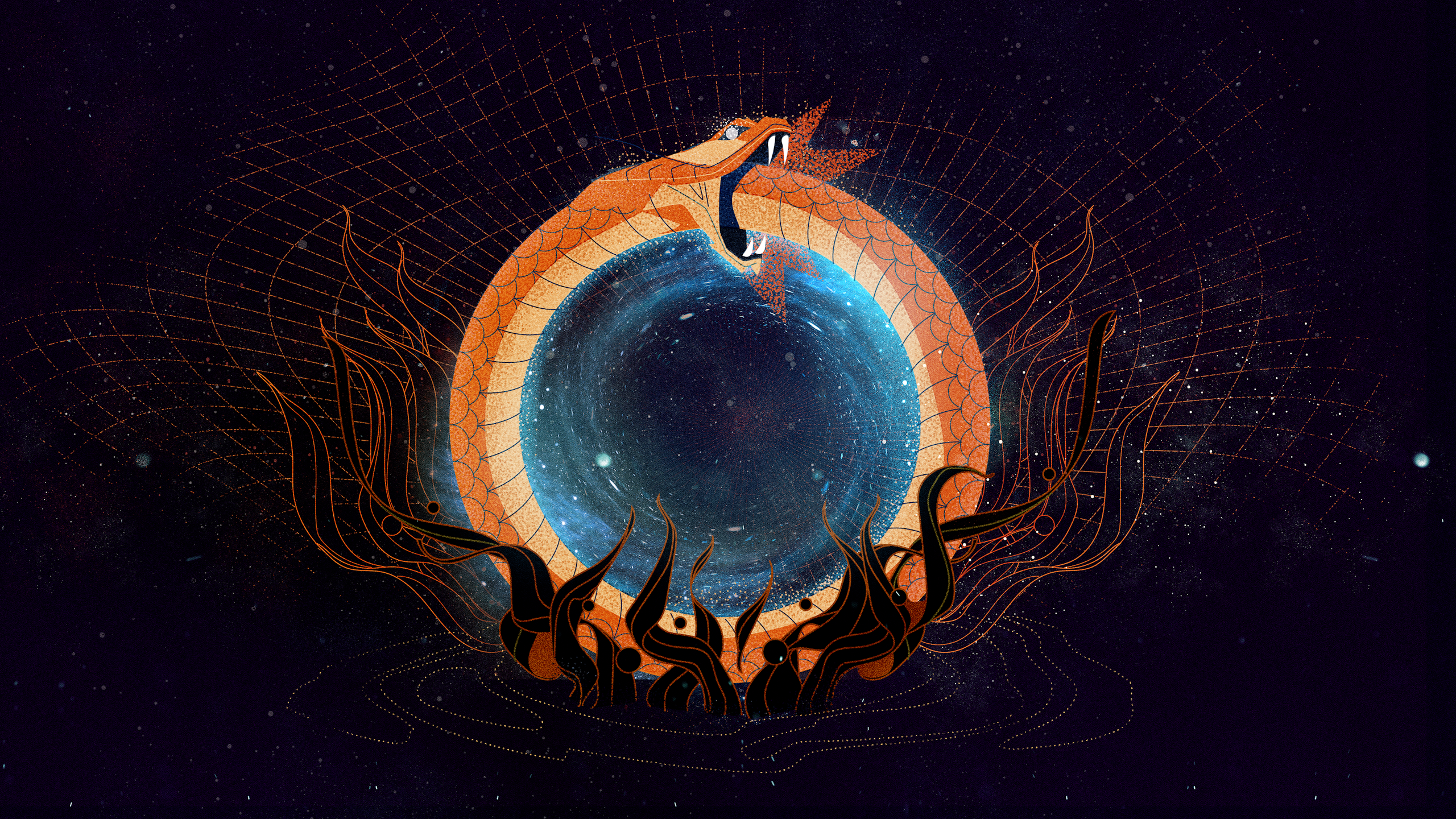Palisade Perceptions
How did a small town invent itself?

Palisade Stories.
Palisade, NV: A sparsely-populated town in the middle of nowhere, whose sole purpose of existence was to extract ore from the nearby mine. Or at least, that was the case until Union Pacific launched their Transcontinental Railroad, which happened to travel right through the middle of nowhere, NV.
Suddenly, Palisade had the chance to be on the map. The town constructed a few saloons and cafes, hoping to lure travelers to disembark the train and part with some of their money. Chuck Dormand had decided that the best way to make Palisade seem like a worthwhile destination was to write about it, so he opened a print shop and began putting out a newspaper extolling the virtues of Palisade.
It began, as many great ventures do, with a slight exaggeration.
Sure, Chuck had started the newspaper to share factual news for and about Palisade, but the whole thing only worked if people actually bought the paper. And to that end, he added a little razzle-dazzle to some of the stories in order to make them more appealing. An embellished history of violence here, a suggestion of murder there, just enough to add a touch of danger and excitement to lure in readers.
And lure in readers he did. His newspaper grew to be a very profitable venture indeed. He didn’t realize just how far his lures had spread until the first time the saloon owner had poured him a drink on the house, explaining that two full tables of heavy drinkers had arrived by railroad that afternoon, based largely on his newspaper articles.
Chuck liked the saloon owner, and especially liked getting free drinks. So the amount of embellishment in his newspaper stories began to increase. Thanks to the Transcontinental Railroad, the number of people from the East who decided to visit the land of these Wild West stories also increased. And, most appealingly, the number of free drinks he received from the saloon owner increased as well.
This was all going splendidly, until some of the tourists on extended vacation had begun grumbling about never seeing any of the “real Wild West” like they read about in the papers. Chuck thought it was a bit strange that when faced with a discrepancy between what they saw with their own eyes, and what they read in the papers, they decided that the newspaper was the “real Wild West”. But that was what the tourists wanted to see to be happy, and happy tourists were what led to prosperous and generous saloon owners.
All of which explained why Chuck was currently dressed as a bandit and carrying a gun loaded with blanks.
“This is a lunk-headed scheme and it can’t possibly work,” said Chuck nervously.
The tall man standing across from him regarded him with distaste. “Ah, quit yer caterwaulin’, ya yellow belly. I’m the one who has to take the tumble and wrangle the fake blood. You just have to say a few lines, fire your iron, and growl at the tourists.”
“They’ll never believe it.”
“They sure as a gun will. They want to believe it. Thanks to your paper.”
Chuck sighed. “Let’s get it over with, then.”
The tall man smiled. “Good. Count eighty from when I leave, then come out into the square and call me a polecat. You remember your lines?”
“Yes.”
“Good. I’ll be waiting,” he said, as he walked out the door.
Chuck wished once again that he had never agreed to this ridiculous plan. Ten. It was not his responsibility to bring every tourists’ silly Wild West fantasy to life, Twenty, even if he had written a few newspaper articles about them. Why couldn’t they just read the papers and be happy? Thirty. Palisade had become a popular destination for every fool on a train with a desire to see the “real Wild West”, Forty, but apparently the real Wild West wasn’t real enough for them. Because here was Chuck god-damned Dormand, reduced to playacting. Fifty. All of his years as a newspaperman, and now he was putting on a show for credulous Easterners. Sixty. Well, nothing to be done for it. He’d already agreed and Johnny would kill him for real if he backed out now. Seventy. There you are, you low-down polecat. There ya are. Ya. Eighty.
Chuck pulled up his kerchief to cover his face, walked out the door to the appointed spot, and brandished his gun at Johnny.
“There ya are, ya low-down polecat! Ah, ’m goin’ to kill ya b’cause of what ya did ta mah
sister!” Chuck fired his weapon, and Johnny dutifully tumbled over the railing, landing to writhe in the dust as blood appeared to spread from his chest. Chuck turned to the terrified tourists and growled at them, at which point a few of them screamed and ran. Chuck then turned and went into his hotel room to change out of this ridiculous costume.
The mood in the back room of the saloon that evening was one of celebration.
“Those greenhorns ate it up!”
“And why wouldn’t they? We put on a good show,” grinned Johnny. “And hey, howabout another drink for my murderer?”
The barkeep poured another shot of whiskey for Chuck, who raised his glass to Johnny before knocking it back. “I’m just glad it’s a done deal.”
“About that… we were thinking, if this is going to be as effective as your newspaper ballyhoo at spreading Palisade stories, we could do it again.”
“You could. I’m out.”
* * 3 MONTHS LATER * *
“You worthless varmint!”
A bandit Chuck didn’t recognize fired his gun, and Johnny fell out of his chair while clutching his chest, which appeared to be sprouting blood. The tourists screamed. Chuck smiled, glad to no longer be taking part in these ridiculous antics. Still, he couldn’t argue with results; people had been flowing into Palisade like never before. A salesman from the Colt firearm company had arrived last week, to sell the new Colt Peacemakers to the residents of the “most dangerous town west of Chicago” (a phrase Chuck was still proud of coining).
Of course, the townsfolk of Palisade mostly used guns as props to put on shows for tourists. But never one to turn down a business opportunity, Johnny convinced the salesman to accept an exclusive sponsorship in exchange for a 10% gross cut of all sales. Now whenever the tourists see a terrifying murder in front of them, they are advised that carrying a Colt is the best way to keep themselves safe in the “real Wild West”. And people kept buying more newspapers, and spread word of Palisade’s wild side.
This did cause a problem when a would-be hero named Clay Allison had arrived the previous month, eager to kill a bandit who did not technically exist. A solution was suggested, to have a young lad dress up as the bandit, while Johnny “shot” him and then appreciatively told Clay Allison that the crisis was averted and his services were no longer required.
Unfortunately, after Johnny “shot” the boy, Clay very much shot him for real, repeatedly. The townspeople were all horrified, but couldn’t say anything about it. They thanked Clay Allison, sent him on his way, and resolved to have a better solution for the future. That’s why Chuck had just finished printing up a special newspaper article with the headline “NOTORIOUS BANDIT KILLED AT LAST!”, to keep on-hand in order to dissuade any would-be heroes. Now the fake bandits could continue to raid in peace.
* * 2 YEARS LATER * *
Gunshots rang out through the town square, and screaming could be heard as people ran in all directions. The banditry productions had gotten more and more elaborate over the past years, as tales of the dangerous town of Palisade had not only attracted more and more thrill-seekers, but also repeat visitors who couldn’t very well be shown the same bandit show twice. By this point most everyone in town had played a bandit at one point or another.
Another bandit Chuck didn’t recognize burst into the newspaper office and pointed a gun at his head.
“Give me your cashbox!” said the bandit.
“Hey, sorry,” whispered Chuck, “I don’t have a prop cashbox handy, nobody told me we were doing this today. I retired from this stuff.”
The bandit fired his gun, and a very real bullet struck Chuck Dormand right between the eyes. After a moment of shock and surprise, his final thought was: “I guess this is the real Wild West.”




Responses